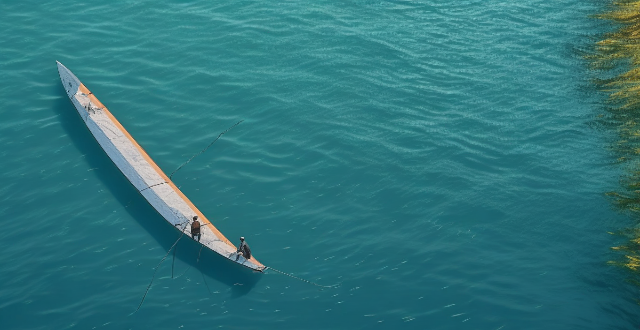Climate change affects fishing resources and livelihoods by altering water temperature, ocean acidity, precipitation patterns, sea level, and causing economic impacts on fishing communities.

Impact of Climate Change on Fishing Resources and Livelihoods
Climate change is a global phenomenon that affects various aspects of life, including the distribution of fishing resources and the livelihoods of fishing communities. The following are some ways in which climate change influences these areas:
Changes in Water Temperature
- Increased Water Temperature: As the Earth's temperature rises, so does the temperature of oceans and other bodies of water. This can have significant impacts on fish populations, as many species are adapted to specific temperature ranges. For example, coral reefs, which are important habitats for many fish species, are particularly sensitive to temperature changes.
- Altered Migration Patterns: Some fish species migrate to cooler waters during certain times of the year. As temperatures change, these migration patterns may be disrupted, leading to declines in fish populations.
Changes in Ocean Acidity
- Ocean Acidification: As carbon dioxide levels increase in the atmosphere, more of it dissolves into the ocean, making it more acidic. This can have negative effects on shellfish and other marine organisms that rely on calcium carbonate to build their shells or skeletons.
Changes in Precipitation Patterns
- Flooding and Droughts: Changes in precipitation patterns can lead to flooding or drought conditions that affect the availability of freshwater for fishing. This can impact both the quantity and quality of fish available for harvest.
- Salinization of Freshwater Sources: Increased saltwater intrusion into freshwater sources due to rising sea levels can also negatively impact fish populations.
Changes in Sea Level
- Loss of Habitat: Rising sea levels can lead to the loss of coastal habitats, such as mangrove forests and estuaries, which are important breeding grounds for many fish species.
- Displacement of Fishing Communities: As coastal areas become increasingly vulnerable to storm surges and other climate-related events, fishing communities may be forced to relocate, potentially losing access to traditional fishing grounds.
Economic Impacts on Fishing Communities
- Decreased Fish Populations: As fish populations decline due to climate change, there may be reduced catch sizes for fishermen, leading to economic hardship for those who rely on fishing for their livelihoods.
- Adaptation Costs: Fishermen may need to invest in new equipment or modify their fishing practices to adapt to changing conditions, which can be costly and potentially financially burdensome.
In conclusion, climate change has far-reaching implications for the distribution of fishing resources and the livelihoods of fishing communities. It is essential for governments, organizations, and individuals to take action to mitigate the effects of climate change and support adaptation efforts for these vulnerable groups.